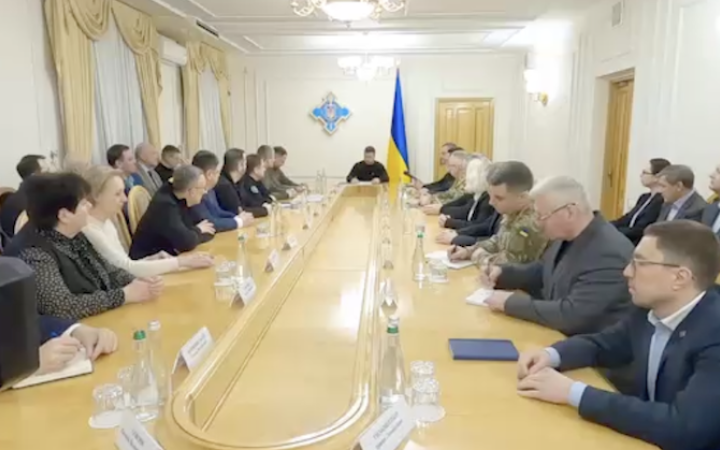President Volodymyr Zelenskyy announced the start of the renewed work of the National Security and Defence Council of Ukraine, with former Foreign Intelligence Service chief Oleksandr Lytvynenko as its secretary.
The NSDC should implement five changes, the president said. The first is to increase forecasting. The NSDC should combine the analytical potential of intelligence and other national security agencies.
"We need to strengthen Ukraine's ability to predict and influence the processes on which the national security of our country depends," he said.
The second is to continue fulfilling all the current tasks of the NSDC system.
"And especially with regard to the sanctions policy of our state," Zelenskyy stressed.
Sanctions have become an important tool for protecting Ukraine's security, and this tool should continue to work.
The third is doctrinal work. This is a new job for the NSDC.
"The clarity of national guidelines and consistency in their implementation is what is needed both now and after the war," the President said.
The National Security and Defence Council and the authorities should implement the new doctrine.
The fourth is cybersecurity and information.
"The National Security and Defence Council has the potential to do more to protect against Russian destabilisation operations and coordinate all state institutions in this area," Zelenskyy said.
Fifthly, the work of the Supreme C’n’C Staff, drafting decisions and monitoring the implementation of decisions, must continue.
"The obvious priority is the defence of our state and the protection of our society," Volodymyr Zelenskyy said.
He added that the new Secretary Lytvynenko is well known in the NSDC, as he has previously worked there, and can now combine this experience with that of the head of the Foreign Intelligence Service.
"I promise that we will do everything to be useful to you. The National Security and Defence Council is an instrument that is becoming extremely important in the current conditions of our struggle for existence, against the Russian aggressor," Lytvynenko said during the presentation.








